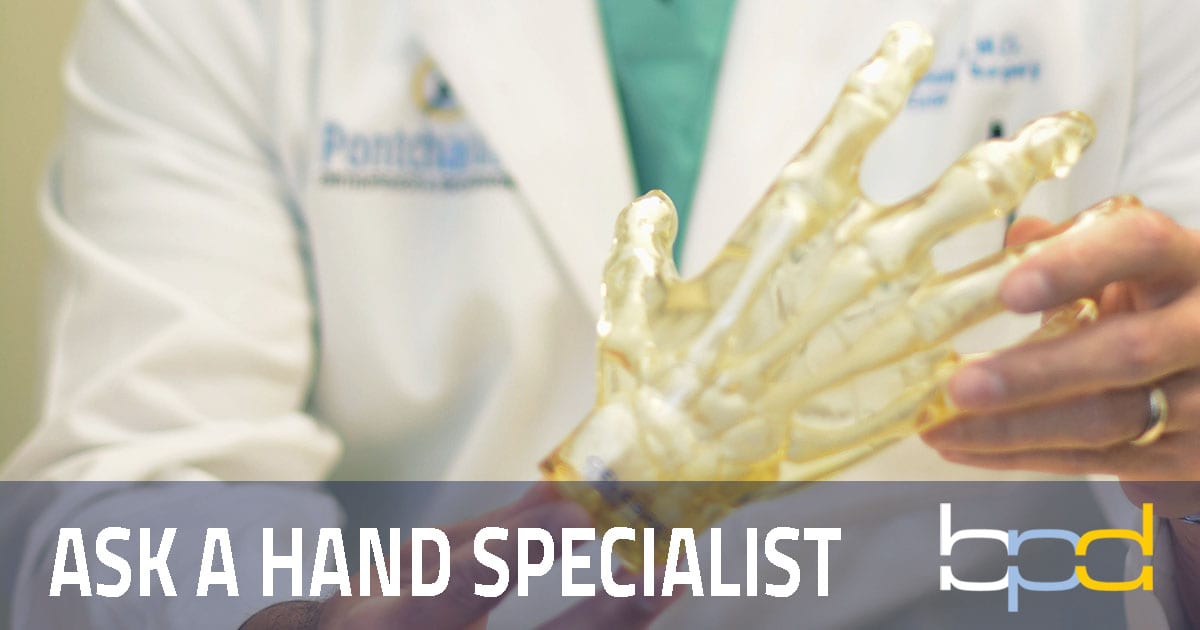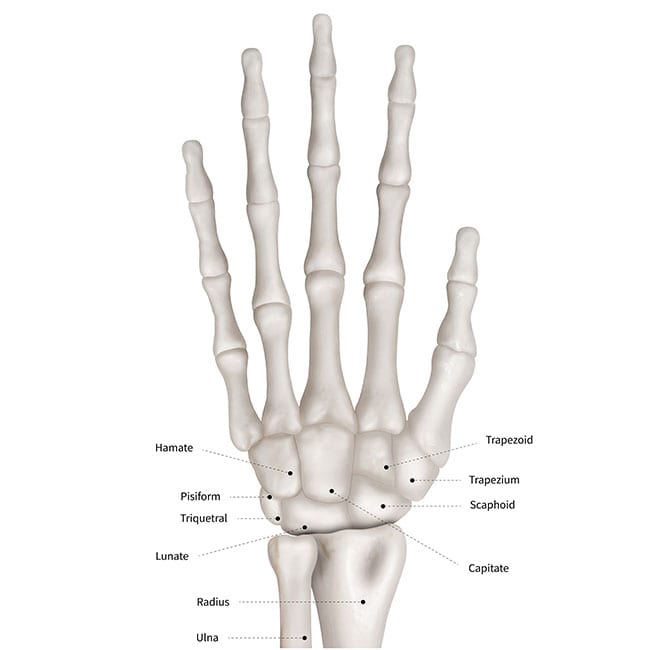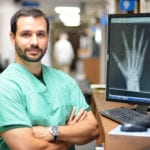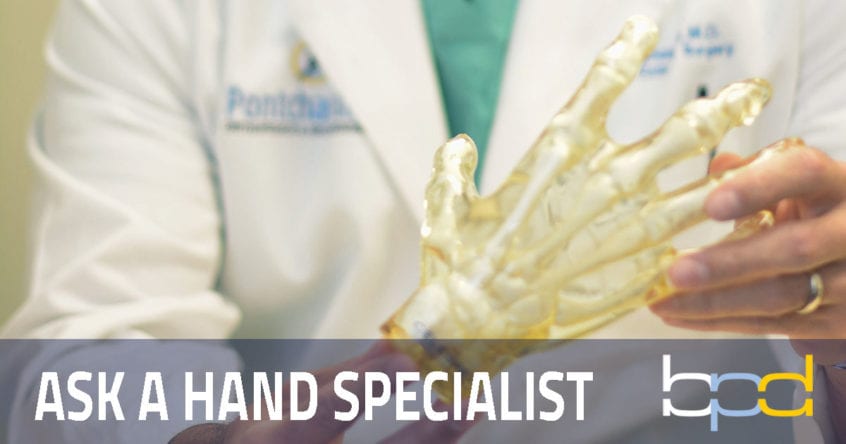
Dr. Brandon Donnelly is a wrist, elbow and hand specialist who sees patients with a wide range of hand conditions. Most days we take our hands for granted. However, when a condition or injury affects our ability to use our hands, it’s expected to have a lot of questions.
Today’s post will focus on the questions you should ask your hand specialist to ensure you receive effective treatment.
What makes a doctor a hand specialist?
Although orthopedists have specialized in hands for many decades, for some people, the term “hand specialist” is new. In addition to completing medical school and a residency in orthopedic surgery, hand specialists complete an additional year of training called a hand surgery fellowship.
Should you have a chronic hand condition or injury, a hand specialist has the training and expertise to accurately diagnose and effectively treat you.

What can a hand specialist do that my general practitioner cannot?
A hand specialist is experienced in a way your family doctor is not. A specialist is board certified. This certification requires on-going training in the latest diagnostic techniques and procedures. A general practitioner may make a general diagnosis for hand pain or weakness. However, a hand specialist can quickly determine the difference between similarly presenting hand conditions like carpal tunnel syndrome and cubital tunnel syndrome, which can be confusing as both cause the hand to be numb.
"In cases where hands are injured in an accident, quick access to a hand specialist can often preserve the function of the hand and expedite recovery."Brandon P. Donnelly, MD
What leads a patient to your office? Pain? Loss of Mobility?
Generally, patients come in to the office because of pain. Chronic pain from a degenerative condition often starts as a nagging ache or stiffness. When hand pain fails to improve, or becomes debilitating and interferes with work or daily tasks, people will make an appointment. In cases where hands are injured in an accident, quick access to a hand specialist can often preserve the function of the hand and expedite recovery.
Do patients need a referral to see a hand specialist?
In most instances, you do not need a referral to schedule an appointment with Dr. Donnelly. However, some insurance companies and managed care programs require a referral from your primary care physician before seeing a hand specialist. If there is any concern, the best course of action is to check with your insurance company to see what the guidelines are.
What happens in a typical office visit?
You will fill out a questionnaire so a hand specialist like Dr. Donnelly has a better understanding of the background, possible mechanism, and history of your condition. More importantly, however, he will sit down with you and personally examine the upper extremity. Many times, this will give enough information to make a diagnosis. Diagnostic tests such as xrays, MRI’s and nerve studies are also conducted to further confirm the diagnosis.
Then, Dr. Donnelly will prescribe a course of treatment which might include nonsurgical options as simple as observation, home exercises, and NSAIDS. In some cases, surgery may be required, and Dr. Donnelly will thoroughly discuss the details of not only the surgery, but also the recovery and expectations.
When it comes to those more invasive treatments, like surgery, a hand specialist has a mastery of the latest hand procedures like Wide Awake Hand Surgery (WALANT). WALANT is a type of surgery that can correct hand conditions without a need for general anesthesia, and other minimally invasive techniques.
What role does a hand specialist play in after care?
Care after a hand treatment depends greatly on the type of treatment performed and the underlying cause of the hand condition. Individualized care with Dr. Donnelly does not stop after hand surgery. He continues to follow the patient during their entire convalescence. This may involve recommendations for immobilization in a brace or splint, or quite the opposite and encourage early range of motion. You might also have restrictions on activities after your surgery. Often, rehabilitation in the form of hand therapy is used to assist in your recovery.
Have a question we didn’t cover?
If you or someone you know has pain, discomfort, or lack of mobility in your hand, contact Dr. Donnelly today for an appointment. You can get answers from a hand specialist who has the expertise to accurate diagnose and treat your hand condition.
About Dr. Brandon P. Donnelly, MD
 Dr. Brandon P. Donnelly is a board certified orthopedic surgeon with Pontchartrain Orthopedics & Sports Medicine who treats all ages of patients in the Greater New Orleans Area. His specialization and practice focus is in injuries and aliments of the upper extremity, including the hand conditions, wrist conditions, and elbow conditions.
Dr. Brandon P. Donnelly is a board certified orthopedic surgeon with Pontchartrain Orthopedics & Sports Medicine who treats all ages of patients in the Greater New Orleans Area. His specialization and practice focus is in injuries and aliments of the upper extremity, including the hand conditions, wrist conditions, and elbow conditions.
This site is not intended to and does not provide medical advice, professional diagnosis, opinion, treatment or services to you or to any other individual. Through this website and links to other websites, Brandon P. Donnelly, MD provides general information for educational purposes only. The content provided in this website and links, is not a substitute for medical care or treatment. You should not use this information in place of a consultation or the advice of your healthcare provider. Brandon P. Donnelly, MD is not liable or responsible for any advice, course of treatment, diagnosis or any other information, services or product you obtain through this site.

